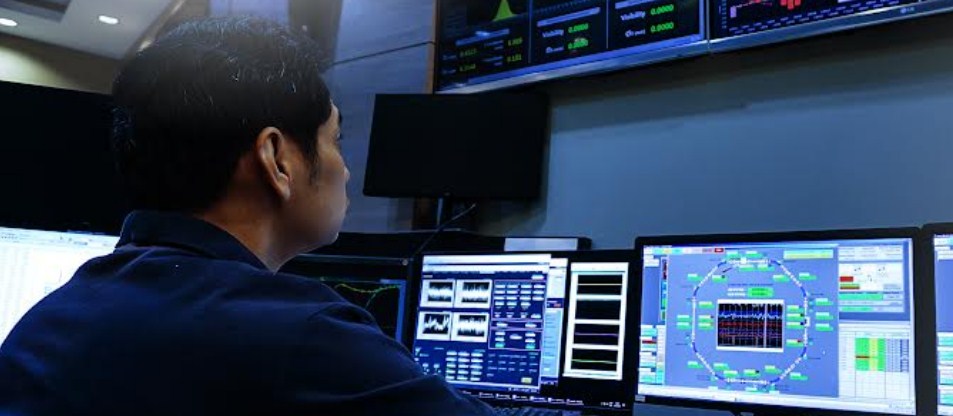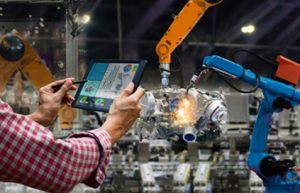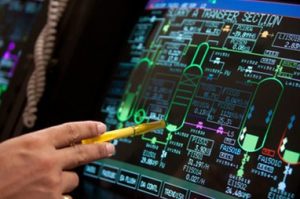
Today’s factories and plants are expanding their variety of instruments and control systems at a rapid pace. Instrument technicians must adapt by learning to efficiently work with:
- Electro-mechanical equipment
- More precise process management
- Increased automation control
- Incorporating the Industrial Internet of Things (IIoT)
- New types of field devices
Evolution of Instrument and Control Systems Technologies technicians must enhance their knowledge and skills sets to stay on top of today’s industry needs. Earning an associate degree in this major will prepare techs to obtain an entry-level job and find opportunities to advance in their careers. The following expansion of the concepts listed above will help technicians better understand this evolution.
The Technicians’ Expanded Role
 Evolution of Instrument and Control Systems Technology technicians’ roles are changing from basic processes on the plant floor to expanded use of advanced equipment, devices, and processes. This change is brought about by factors in the U.S. and the international market, including:
Evolution of Instrument and Control Systems Technology technicians’ roles are changing from basic processes on the plant floor to expanded use of advanced equipment, devices, and processes. This change is brought about by factors in the U.S. and the international market, including:
- Cheap labor in foreign competition
- Increased backorders of raw materials and supplies
- Shortages of skilled labor in the industry
- Emphasis on lean manufacturing
- Current inflation is driving prices up
As a result of these factors, technicians are being asked to do more. They must be better trained, more flexible, and take on some supervisory responsibilities.
Electro-mechanical Equipment Has Become More Sophisticated
Electro-mechanical equipment and instruments can now use digital interfaces to transmit data, status, diagnostics, and other information throughout a control system. The most successful factories and plants use advanced smart devices for instrumentation and control technology.
 Technicians use smart devices to deliver information and commands beyond the typical control processes. This electro-mechanical technology can deliver data to:
Technicians use smart devices to deliver information and commands beyond the typical control processes. This electro-mechanical technology can deliver data to:
- Maintenance management
- Asset management
- Inventory control
- Production line operators
- Assembly line operators
Controlling production and business applications is enhanced with the use of advanced electro-mechanical technology.
Precise Process Management Is Vital to Remain Competitive
Precision management of manufacturing processes requires careful attention to complex or custom-made products. Some measurements are so exacting they require tolerances of +/- .0005” (5-ten thousands of an inch). A constant flow of information between instruments, workers, and the control processes is imperative.
Advanced material requirements planning software must be used for material needs. Technicians can manage scheduling and capacity for the production machines and equipment in the production lines. The software and instrumentation provide feedback as the work progresses and report any issues that occur.
“Instrument and control systems technicians must enhance their knowledge and skill sets to stay on top of the needs of today’s industries. Earning an associate degree in this major will prepare techs to obtain an entry-level job and opportunities to advance in their careers.”
Increased Automation Control Raises the Quality Standard
 Advanced automated production systems use numerous components that provide data in near real-time. All the data must be coordinated with software that is at the forefront of efficiency and effectiveness. Whether it’s diagnosing operations, scheduling maintenance of equipment, or increasing the safety of operations, automation is the key to the future of manufacturing.
Advanced automated production systems use numerous components that provide data in near real-time. All the data must be coordinated with software that is at the forefront of efficiency and effectiveness. Whether it’s diagnosing operations, scheduling maintenance of equipment, or increasing the safety of operations, automation is the key to the future of manufacturing.
Networks are used for ‘smart talk’ for collecting and using data in smart factories and plants. The right automation controls are used to prevent overloads of data transmission that can create problems. Their main purpose is to improve product quality and increase safety for plant workers.
Industrial Internet of Things Is Significant for U.S. Companies
The industrial internet of things (IIoT) aims to reduce the time lags between data collection and data recognition with software. Some companies deliver edge data to IIoT software through the cloud. By bypassing the standard automation systems, equipment and instruments can connect directly via the cloud to Ethernet-based networks to improve production efficiency.
New Field Devices Allow Faster Production and Communication
The latest field devices are used for controlling automation processes when on or away from the production site. They can measure and monitor these system components:
- Analyze liquids
- Flow
- Level
- Pressure
- Temperature
New field device applications operate reliably and accurately in any situation. Technicians use them for the seamless integration of fieldwork with plant automation systems.
Now is a great time to start earning your associate degree to become part of this fascinating world of instrument and control systems technology.
For more information about graduation rates, the median debt of students who completed the program, and other important information, please visit our website at:

